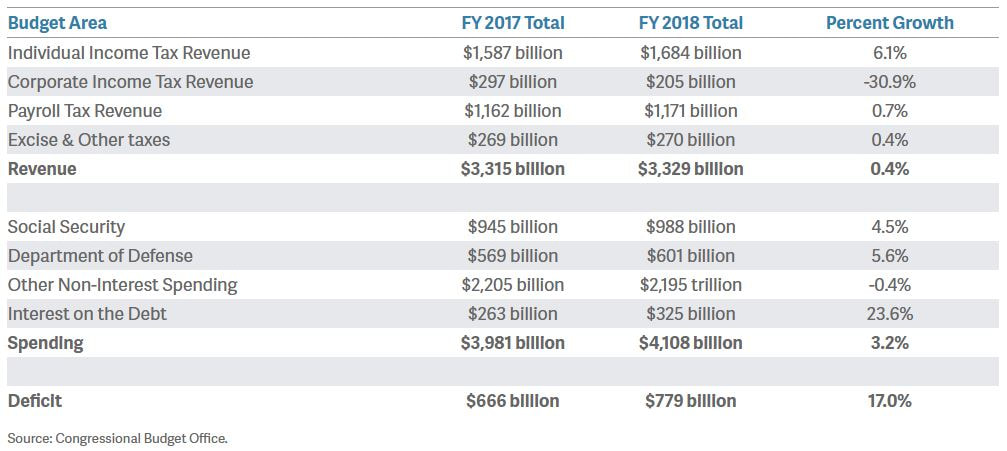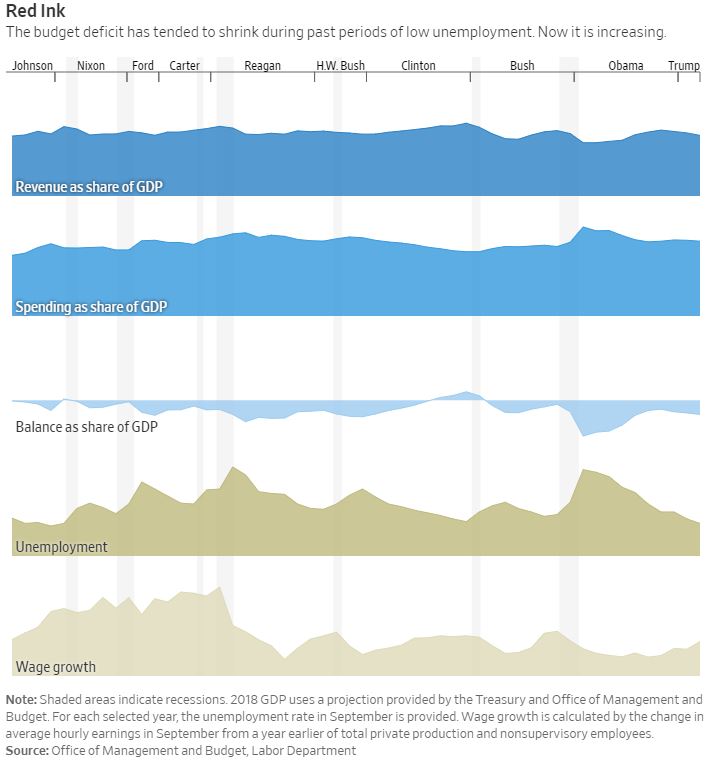|
In this Let People Prosper episode, let's discuss the report released by the U.S. Treasury today that notes the federal budget deficit was $779 billion, an increase of 17%, in fiscal year 2018. Again, the evidence shows that government doesn't have a revenue problem but rather a spending problem.
The largest increase in expenditures was in interest paid on the debt that increased by 23.6% to $325 billion, which is about half of what our taxpayer dollars are used to fund national defense, about one-third of what we pay for Social Security, and about 8% of total federal expenditures. A problem is that interest on the debt will continue to increase at a rapid pace because the national debt looks to continue to grow and the Federal Reserve is expected to raise their targeted federal funds rate, which is currently 2-2.25%. Each dollar spent by the government is funded by either taxes, debt, or inflation. Each of these drain resources from the productive private sector. In other words, each dollar crowds out our ability to satisfy our desires and prosper. So, we must be able to prove without doubt that each dollar is spent more effectively by politicians than by individuals in the private sector. Sure, there are roles for government, but, in my view, the federal government should have three main functions: national defense, justice system, and very few public goods. The total of national defense is just above $600 billion per year, so assuming the rest may run $400 billion per year, that $1 trillion federal budget would be only 25% of the $4.1 trillion spent today. Given a $1 trillion federal budget, the budget surplus would be $2.3 trillion, allowing for substantially lower taxes at every level--preferably one flat rate on final consumption. You'll also notice that tax collections did increase even after the large Trump tax cuts indicating that the robust growth of a dynamic economy supported more revenue, even if it was less than what it could have been otherwise. Moreover, higher tax revenue negates some of the noise by the Congressional Budget Office of a $1.5 trillion deficit over a decade based on a static economic model, but we don't live in a static world and the data today are another revelation of that fact. When we consider these details, the crowd out effect of government spending and interest on the $21.5 trillion debt, which is greater than our country's entire economic output of $20 trillion, is a huge cost to the prosperity of our nation that we must get control over before it's too late. But the cost is even greater than that because the $20 trillion GDP includes government spending, which is about 20% of GDP. If you exclude government spending, which there is good reason because it's a transfer of funds from the private sector, then the national debt would be $21.5 trillion/$16 trillion, or 134%! That's what we are looking at trying to pay back over time and is currently more than $65,000 per American. As Reinhart and Rogoff wrote in their book This Time Is Different, there's likely a threshold when the debt-to-GDP ratio gets too high such that it hinders economic growth. I don't think that threshold is very high and that we are far above it, and moving further above it quickly unless things change. We are seeing the benefits of the tax and regulatory reforms along with the benefits of a long--though relatively weak before recently--expansion, but these benefits will quickly expire if government spending is not restrained, trade barriers continue to be imposed, and the national debt continues to rise. The best path to let people prosper is by getting rid of government barriers to opportunity, so we must reduce government spending.
0 Comments
Leave a Reply. |
Vance Ginn, Ph.D.
|



 RSS Feed
RSS Feed